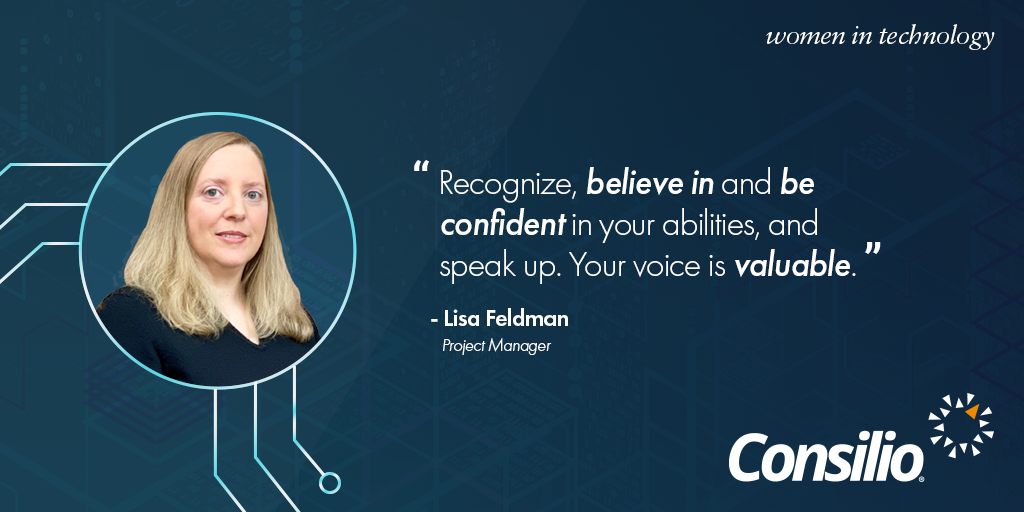 This blog is part of our on-going Women in Technology series.
This blog is part of our on-going Women in Technology series.
Lisa Sternoff Feldman is a Project Manager at Consilio. Lisa earned her dual bachelor’s degrees in Natural Science/Biology and Economics from the University of Puget Sound, and her law degree from Santa Clara University. She is admitted to practice in Washington state and before the United States Patent and Trademark Office. Lisa is the current Meetings Director for the Seattle chapter of Women in eDiscovery
How did you get into this industry?
I worked in biotech doing research and development before I attended law school. I wanted to become a patent attorney, and a mentor suggested that I get litigation experience at a large firm to pursue Patent Litigation. My first law firm job was at Preston Gates & Ellis (now K&L Gates), who were pioneers in using electronic discovery. I reviewed documents using Attenex, the first concept clustering software – many in the industry probably know it as Ringtail. After several years working at law firms, I wanted to expand my skill set and learn the backend of eDiscovery, so I applied to a vendor to become a project manager.
What were some pivotal moments in your career that helped to get you to where you are today?
Having exposure from the beginning to Attenex, Relativity, and other review software, I am very comfortable and fluent using these tools. My background as an attorney gives me better insight into understanding my client’s needs, and how to provide the best experience for them.
Have you ever noticed a time in your career where your gender proved to differentiate you?
In law school, I was advised to not wear my engagement ring to interviews in case they would assume that you were going to have babies and quit. Yet, my male classmates were encouraged to talk about their wives and children. Having a family is seen as an asset for men, but a liability for women. I have had some litigation support managers question my answers and technical knowledge and defer to my male co-project managers or lead. I have definitely seen some improvement over the years, but there is still much work to be done to equalize opportunities.
What is your advice for someone working in a predominately male workplace?
Recognize, believe in and be confident in your abilities, and speak up. Your voice is valuable. Often you will have a unique perspective to offer on an issue that your colleagues do not see. This is true for all underrepresented groups. Diversity and inclusivity benefits everyone.
What do you think companies could do to motivate more women to pursue careers in technology?
I believe addressing stereotypes and biases and encouraging and making space for girls to pursue studies in math, science, and engineering early on is key. I would love to see more companies providing internships for high school and college girls and women to get hands on work experience in technology and other STEM fields. The more we normalize women working in technology, the more the numbers will increase. It helps to see people like you as role models and mentors.